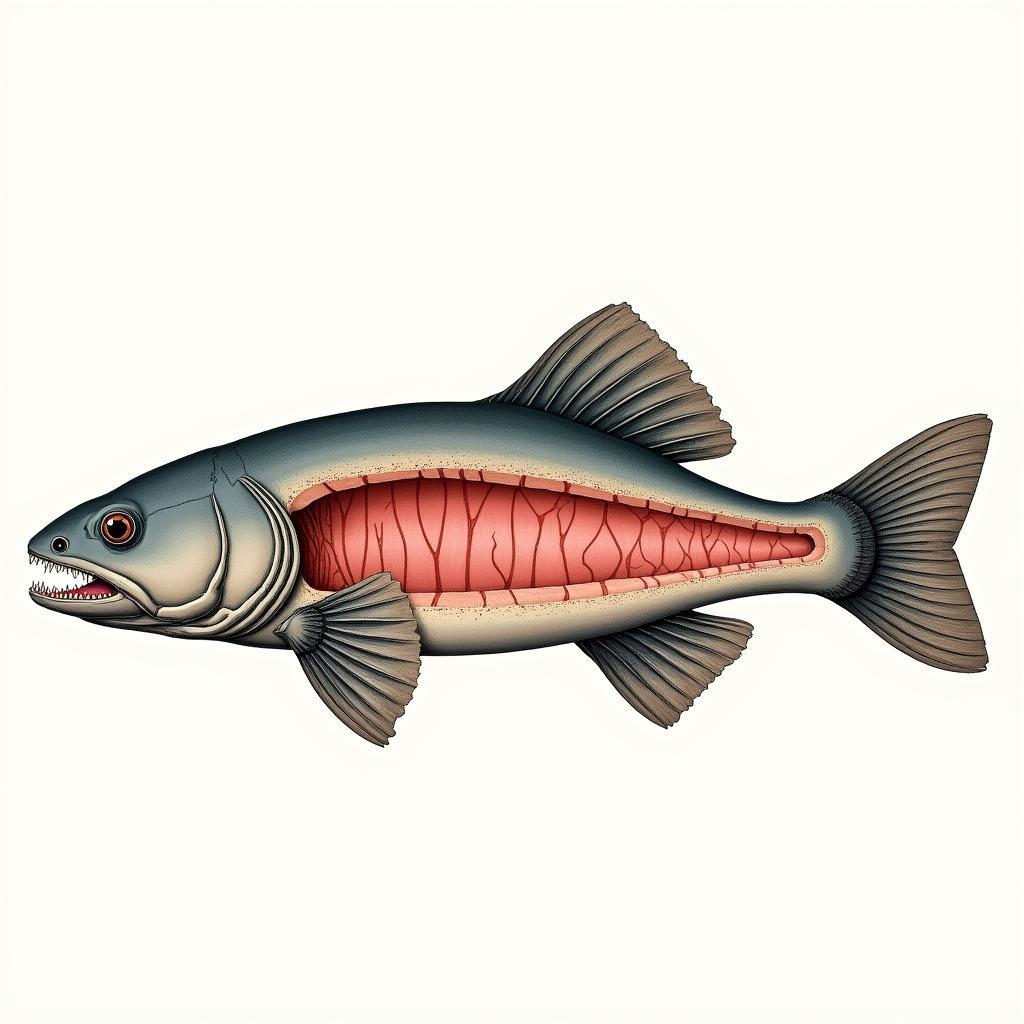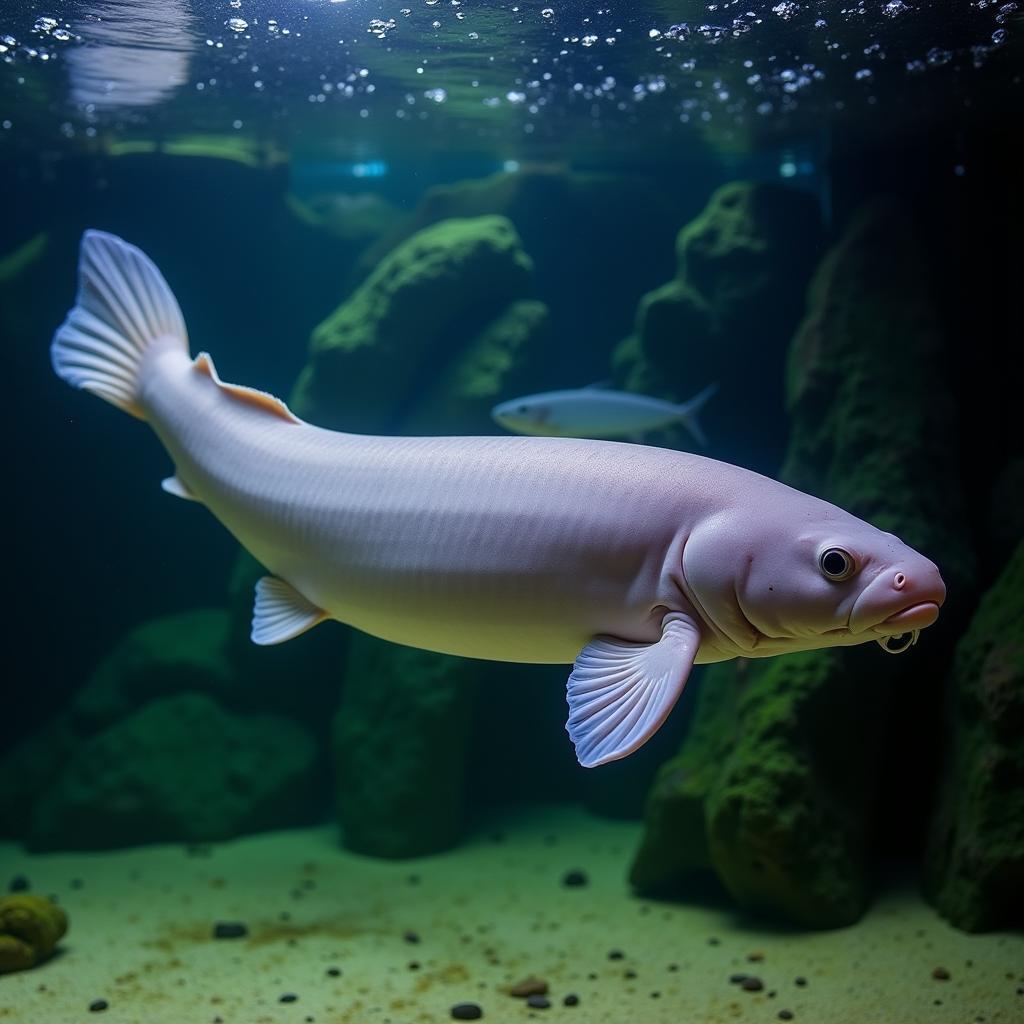The West African Lungfish: An Ancient Fish That Breathes Air
The West African Lungfish, also known by its scientific name Protopterus annectens, is a fascinating creature that offers a glimpse into the evolutionary history of vertebrates. This unique fish, found in the rivers and lakes of West Africa, possesses the remarkable ability to survive out of water for extended periods, breathing air much like land animals do.
A Fish Out of Water: Adaptations for Survival
What sets the West African lungfish apart from most other fish is its remarkable adaptation to survive in environments with fluctuating water levels. Unlike their aquatic counterparts that rely solely on gills, lungfish have developed a unique respiratory system that allows them to breathe air. While they do possess gills, these are relatively rudimentary and used primarily in their larval stage. Instead, the West African lungfish has evolved modified swim bladders that function as lungs. These “lungs” are highly vascularized, meaning they have a rich blood supply, enabling the fish to extract oxygen from the air.
This adaptation proves crucial during the dry season when rivers and lakes shrink, forcing the lungfish to burrow into the mud. They secrete a copious amount of mucus, forming a protective cocoon around their bodies, leaving only a small opening for air to enter. In this dormant state, known as estivation, the West African lungfish can survive for months, even years, until the rains return.
 Internal anatomy of a West African lungfish showing lungs
Internal anatomy of a West African lungfish showing lungs
Lifestyle and Behavior: Masters of Adaptation
The West African lungfish is a nocturnal predator, emerging at night to feed on a variety of prey, including insects, crustaceans, and smaller fish. Their diet shifts depending on their environment and the availability of food. During the rainy season, they are active hunters, utilizing their keen sense of smell and electroreception, the ability to detect electrical fields, to locate prey in murky waters.
These fascinating creatures are also known for their parental care. Males take on the responsibility of guarding the eggs, which are laid in nests built in shallow water. The male will fiercely protect the young fry, ensuring their survival until they are large enough to fend for themselves.
Conservation Status and Threats
While the West African lungfish is not currently considered endangered, their populations are facing increasing pressure from habitat loss, pollution, and overfishing. The destruction of wetlands and the damming of rivers have significantly impacted their natural habitats. Furthermore, they are often caught for food, particularly during the dry season when they are easily accessible in their mud burrows.
The West African Lungfish: A Living Fossil
The West African lungfish, with its unique ability to breathe air and survive in harsh conditions, offers invaluable insights into the evolutionary journey of vertebrates from water to land. Their ancient lineage can be traced back over 400 million years, making them true living fossils. Studying these remarkable creatures provides scientists with a better understanding of the adaptations that allowed early fish to transition onto land, paving the way for the evolution of amphibians, reptiles, and eventually, mammals.
 A West African lungfish in a home aquarium setting
A West African lungfish in a home aquarium setting
FAQs About the West African Lungfish
How long can a West African lungfish stay out of water?
While they can survive for several years in aestivation, under normal circumstances, West African lungfish need to surface and breathe air every 30-60 minutes.
What do West African lungfish eat?
They are opportunistic carnivores, feeding on a variety of prey such as insects, crustaceans, mollusks, and smaller fish.
Are West African lungfish dangerous to humans?
No, West African lungfish are not considered dangerous to humans. They are docile creatures and will not attack unless provoked.
Can you keep a West African lungfish as a pet?
Yes, West African lungfish can be kept as pets, but they require specialized care. They need a spacious tank with a muddy substrate and regular access to the surface to breathe air.
Where can I see a West African lungfish?
You can find West African lungfish in zoos and aquariums around the world. They are also sometimes available for purchase from specialized fish dealers.
Further Exploration
For more information on the fascinating world of African wildlife, be sure to check out our articles on the African fish eagle in Kruger National Park and the incredible story of how some African fish live without water.
